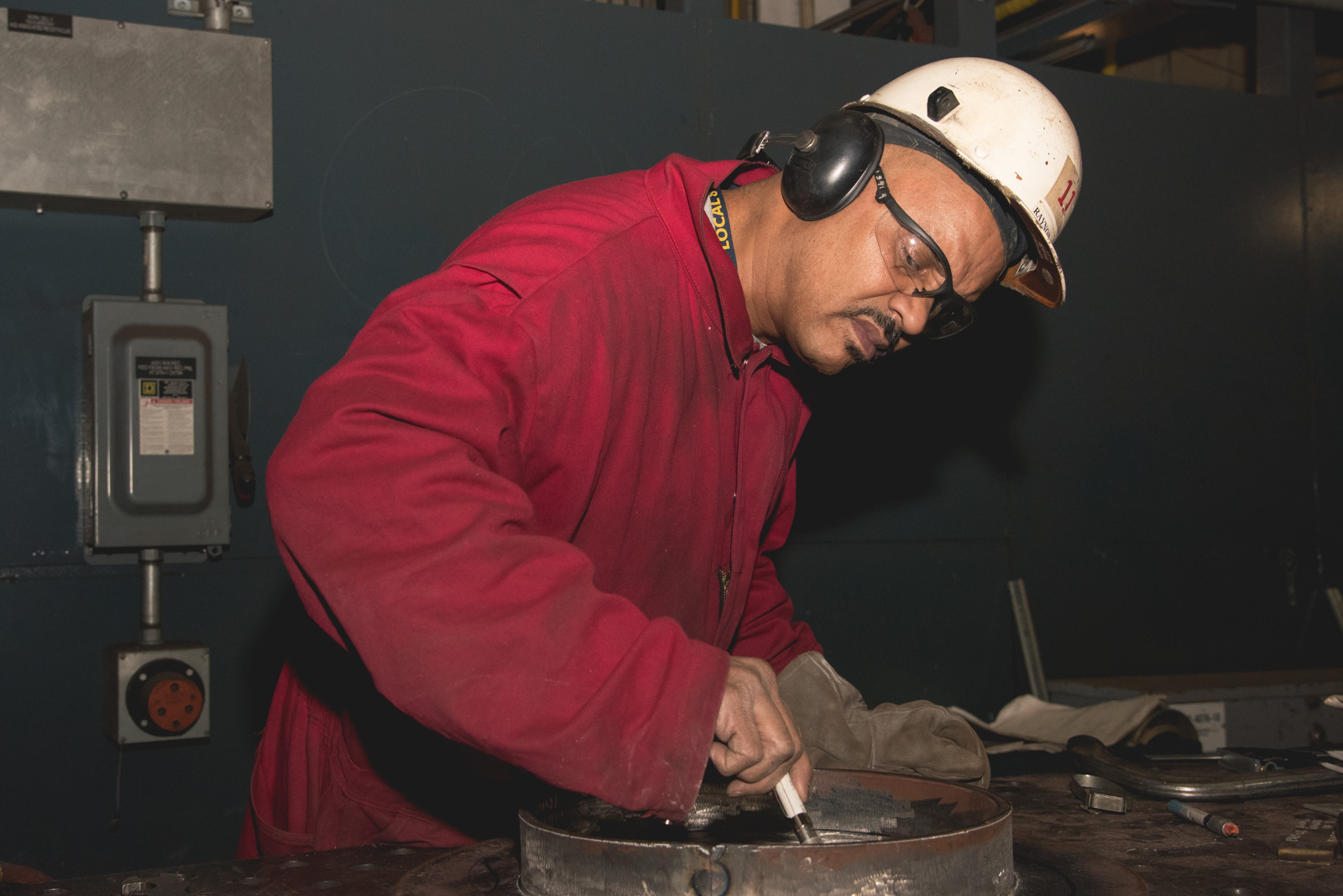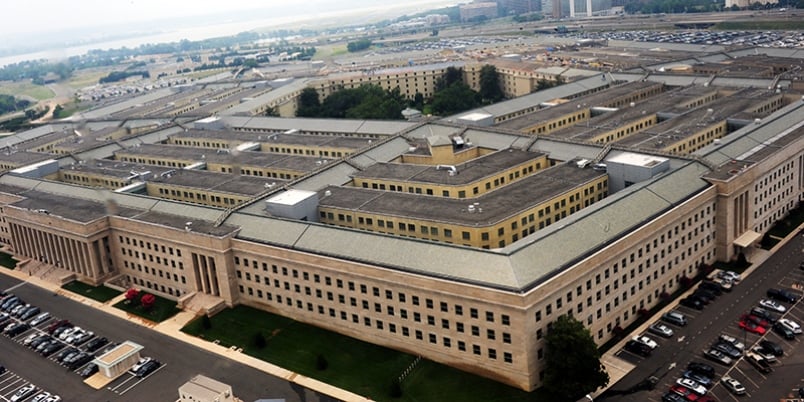
It’s still too early to say if the COVID-19-related economic slowdown is significantly disrupting the production of major programs, the Navy’s top weapons-buyer said during a media call Tuesday.
At the shipyards, the near-term priority work is on track. However, the Navy is still watching how COVID-19-related restrictions and supply-chain problems are disrupting the mid- and long-term work, James Geurts, the assistant secretary of the Navy for research, development and acquisition, said Tuesday.
Asked about continuing operations while the virus hits or threatens shipyards and manufacturers, Geurts said, “we are seeing less [disruption] than in the first couple weeks, but we are still learning and studying hard what the potential downstream impacts could be.” He added the Navy and its industry partners were only about five weeks into the pandemic and so it would be hard to draw any larger conclusions yet about impacts to specific programs or sectors.
On March 20, Ellen Lord, the undersecretary of Defense for acquisition and sustainment, announced the Department of Homeland Security declared the defense industrial base as a critical infrastructure sector. Doing so meant many defense contractors could continue operations.
However, these companies are not immune from COVID-19, and the industry was forced to adapt its operations during the pandemic. Some companies had disruptions and are just now coming back as workers recover, Geurts said. Geographic and temporal elements to the pandemic mean not everyone is affected the same.
The best-case scenario is zero infections, Geurts said. But the reality is everyone – the Navy and its contractors – recognize COVID-19 is present and must focus on understanding how to operate within the Centers for Disease Control and Prevention guidelines while also accomplishing the mission.
Protecting the workforce from COVID-19 has meant remaining flexible when creating a prevention plan for shipbuilder Huntington Ingalls Industries. During the past several weeks, the shipbuilder has steadily adapted its process by instituting an evolving set of preventative measures.
In March, HII stressed the importance of hand-washing, but as CDC guidelines changed, the shipbuilder added measures such as wearing face masks, increasing social distancing and encouraging telework.
“We have, I can say we have about 10 times as many people working remotely today as we did six weeks ago,” Mike Petters, HII’s chief executive, said during the shipbuilder’s virtual annual meeting Tuesday morning.
Roughly 10,000 employees are now teleworking, Beci Brenton, a Huntington Ingalls Industries spokeswoman, told USNI News after the meeting.
During the meeting, Petters did not provide details about the company’s operations this year. More information is expected to be discussed next week during a planned conference call with analysts to discuss the company’s first-quarter financial results.
During the past several weeks, though, Huntington Ingalls Industries did report employees testing positive for COVID-19 at both of its primary shipbuilding facilities – 30 employees at Ingalls Shipbuilding in Pascagoula, Miss., and 34 employees at Newport News Shipbuilding in Newport News, Va., as of last weekend.
Throughout the industry, shipyards are increasing their screening efforts, including checking employees every day using temperature readers, Geurts said. Workers with fevers are told to stay home or directed to seek medical attention. Companies are also adjusting how workers enter yards so temperatures can be taken remotely without too many people queueing up together.
Ingalls Shipbuilding just started temperature checks as workers arrived. Anyone with a temperature of 100.5 or higher is directed to get a recheck. If the second check is still 100.5 or higher, the employee is sent to get a COVID-19 test and quarantine as necessary. Newport News Shipbuilding will start a similar process next week, Brenton said.
“My sense right now is it is stabilizing and we are learning how to operate more and more efficiently in the midst of [the disease], as opposed to strictly trying to avoid having any infections,” Geurts said.





